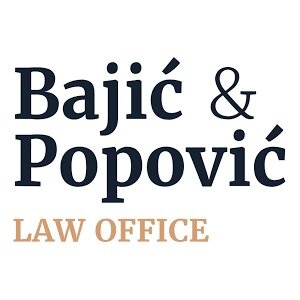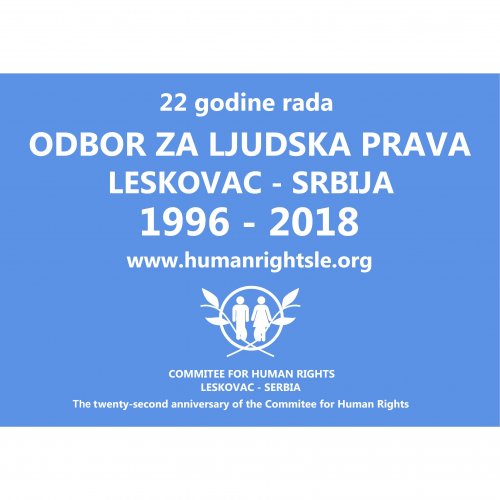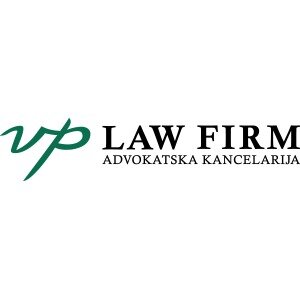Best Civil Rights Lawyers in Serbia
Share your needs with us, get contacted by law firms.
Free. Takes 2 min.
Or refine your search by selecting a city:
List of the best lawyers in Serbia
About Civil Rights Law in Serbia
Civil rights in Serbia encompass the protection and promotion of individual freedoms and rights as laid out in the Serbian Constitution and various international treaties. These rights aim to ensure equality, freedom from discrimination, and respect for human dignity. Serbia's civil rights law is influenced by European Union standards, especially regarding anti-discrimination and the protection of minority rights, given Serbia's diverse population.
Why You May Need a Lawyer
Individuals may require legal help in civil rights for numerous reasons. You might face discrimination based on race, gender, ethnicity, or disability. If your freedom of speech or assembly rights are challenged, legal advice can help assert these rights. Other situations include unlawful detention or breaches of privacy. Lawyers specializing in civil rights law can offer guidance, represent you in court, or help file complaints with governmental bodies.
Local Laws Overview
Serbia's legal framework for civil rights includes the Constitution, which guarantees fundamental freedoms such as the right to equality, freedom of expression, and assembly. The Law on the Prohibition of Discrimination outlines various forms of discrimination and provides a mechanism for protection and compensation for victims. Additionally, Serbia has ratified international human rights conventions, which form an integral part of its legal system and provide additional safeguards for civil rights.
Frequently Asked Questions
What are my basic civil rights in Serbia?
Your basic civil rights include the right to life, liberty, equality, privacy, freedom of expression, and assembly. These are protected under the Serbian Constitution and various laws.
How does the law prevent discrimination?
The Law on the Prohibition of Discrimination prohibits discrimination on various grounds, including race, gender, age, ethnicity, and disability. The law establishes a framework for complaints and redress.
What should I do if I face discrimination at work?
Report the incident to your employer and seek legal advice. You may also lodge a complaint with the Commissioner for the Protection of Equality or file a lawsuit in court.
How can I file a complaint for a civil rights violation?
You can file a complaint with the Commissioner for the Protection of Equality or take legal action in courts, depending on the nature of the violation.
Are there any organizations that can help me with civil rights issues?
Besides governmental bodies, non-governmental organizations (NGOs) also provide support, including advice, legal aid, and advocacy.
Can I challenge a law that I believe infringes on my civil rights?
Yes, you can challenge laws in constitutional court if you believe they infringe on your constitutional rights.
What protections exist for minority groups in Serbia?
Various laws protect minority rights, including provisions for cultural, educational, and linguistic freedom, in alignment with international standards.
What should I do if I feel my right to privacy has been violated?
Seek legal advice, particularly if the violation involves state authorities or large organizations. Legal avenues and regulatory bodies can address such concerns.
Is freedom of speech protected in Serbia?
Yes, freedom of speech is constitutionally protected, though there are limitations related to hate speech or incitement of violence.
How can I ensure my civil rights are upheld?
Be informed about your rights, seek advice when needed, report abuses, and participate in civic activities. Legal consultation can offer assistance when complex issues arise.
Additional Resources
Consider contacting the Commissioner for the Protection of Equality or the Serbian Ombudsman, both of which handle complaints related to civil rights violations. Non-governmental organizations like the Humanitarian Law Center or the Lawyers’ Committee for Human Rights (YUCOM) provide valuable support and resources.
Next Steps
If you require legal assistance in civil rights, start by consulting a lawyer specializing in this field. They can evaluate your situation, advise on the best course of action, and represent you in legal proceedings if necessary. Ensure any documentation or evidence related to your case is well-organized, and consider reaching out to human rights organizations for additional support and information.
Lawzana helps you find the best lawyers and law firms in Serbia through a curated and pre-screened list of qualified legal professionals. Our platform offers rankings and detailed profiles of attorneys and law firms, allowing you to compare based on practice areas, including Civil Rights, experience, and client feedback.
Each profile includes a description of the firm's areas of practice, client reviews, team members and partners, year of establishment, spoken languages, office locations, contact information, social media presence, and any published articles or resources. Most firms on our platform speak English and are experienced in both local and international legal matters.
Get a quote from top-rated law firms in Serbia — quickly, securely, and without unnecessary hassle.
Disclaimer:
The information provided on this page is for general informational purposes only and does not constitute legal advice. While we strive to ensure the accuracy and relevance of the content, legal information may change over time, and interpretations of the law can vary. You should always consult with a qualified legal professional for advice specific to your situation.
We disclaim all liability for actions taken or not taken based on the content of this page. If you believe any information is incorrect or outdated, please contact us, and we will review and update it where appropriate.
Browse civil rights law firms by city in Serbia
Refine your search by selecting a city.















